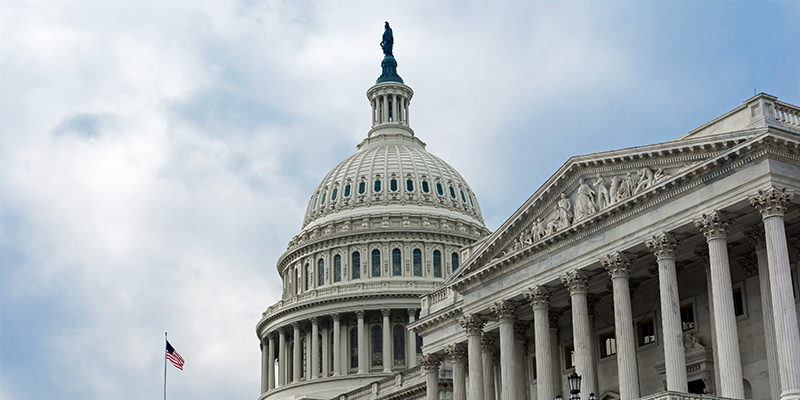On March 11, President Joe Biden submitted his FY 2025 Proposed Budget to Congress. Like the budget he proposed last year around this time, it contains a number of tax policy changes that, if enacted, would have an outsized negative impact on the commercial real estate industry. But unlike last year’s proposal, this is an election-year proposal intended as the administration’s statement on the economic agenda Biden will pursue if re-elected this November.
That does not mean, however, that this budget proposal should be seen as simply a rhetorical document with little chance in a Republican-controlled House of Representatives. Unlike prior year budget proposals, this one is a setup for an unavoidable tax debate in 2025, when many of the tax provisions enacted during the Trump administration in the Tax Cuts and Jobs Act of 2017 will expire. As a result, many lower and middle-income Americans, not just businesses, will face tax increases if Congress fails to renew a number of provisions. Democrats and Republicans will be forced to negotiate and pass tax legislation because both sides of the political aisle will need it.
If reelected, Biden will of course claim that the voters agree with his economic vision, and he will have enormous negotiating leverage in the tax debate because of the scheduled tax increases that will go into effect.
As detailed in the Treasury Department’s General Explanations of the Administration’s Fiscal Year 2025 Revenue Proposals, those provisions most concerning from the perspective of commercial real estate include:
- Capital gains taxed at ordinary income tax rates: The budget proposal would nearly double the tax on capital gains for high-income taxpayers, increasing it from 20% to 39.6%. It would also increase the Net Investment Income Tax (NIIT), which is also applied to capital gains from 3.8% to 5%. As a result, the combined rate on capital gains would be increased from the current 23.8% to a rate of 44.6% (a higher ordinary income rate of 39.6% plus a higher NIIT of 5%). Estimated revenue over 10 years: $289 billion;
- Section 1031 Like-Kind Exchanges limited: The proposal eliminates tax deferral for real estate like-kind exchanges over $500,000 ($1 million for married individuals). Estimated revenue over 10 years: $19.7 billion;
- Carried interest tax increase: The proposal would end capital gains tax treatment for carried interests in certain partnerships, including real estate partnerships, effectively doubling the tax rate by taxing them at the proposed higher ordinary income rates. Estimated revenue over 10 years: $6.6 billion;
- Basis changes in estate law: The proposal would repeal the “step-up” in basis of inherited assets and require that tax on appreciated assets be immediately payable upon the death of the owner of the asset (revenue raised is included in capital gains revenue score);
- Corporate tax increase: the proposal would raise the corporate rate from the current 20% to 28%. Estimated revenue over 10 years: $1.32 trillion;
- Ordinary income tax increase: Increasing the top rate on ordinary income to 39.6% for higher earning (over $400,000 annually) taxpayers. Estimated revenue over 10 years: $235.2 billion;
- Unrealized capital gains tax: A proposed retroactive 25% minimum tax, assessed annually, on the unrealized capital gains of individual taxpayers with $100 million in net assets. Estimated revenue over 10 years: $436.6 billion;
- Expansion of NIIT: The proposal would apply the net investment income tax to real estate professionals and other partnerships and pass-through businesses currently excluded from the tax. This would effectively end the exception for real estate professionals in an active real estate trade or business. Estimated revenue over 10 years: $393 billion.
Biden includes several pro-housing tax incentives in his budget proposal that merit support, including an expansion of the Low-Income Housing Tax Credit. But as the above list of proposals show, there will be a lot at stake for commercial real estate in 2025. If former President Donald Trump should regain the White House in November, he will most likely face difficult terrain in Congress as margins are expected to remain small for whichever party holds the majority, and divided government is highly likely.
Either way, the tax debate will be the central legislative battle for Congress in 2025.








